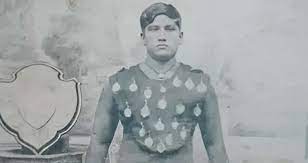
In the annals of Indian sports history, one name stands out as a pioneer of grit and determination: Hamida Banu. Born in the early 1900s near Aligarh, Uttar Pradesh, Banu defied societal norms to become India’s first professional woman wrestler, a feat that earned her global recognition and the moniker “Amazon of Aligarh.”
Banu’s journey into wrestling began at a time when women’s participation in athletics was strongly discouraged. Undeterred, she fearlessly challenged male wrestlers, wagering her hand in marriage to the first to defeat her. This bold move catapulted her into the limelight, with her spectacular victories making headlines and establishing her as a trailblazer in a male-dominated sport.
Her career transcended national borders, as she clinched a victory against Russian wrestler Vera Chistilin in record time on the international stage. Banu’s prowess in the ring, coupled with her unconventional challenges and larger-than-life persona, cemented her status as an icon of resilience and breaking barriers.
However, Banu’s journey was not without challenges. Despite her fame, she faced opposition and backlash from conservative elements, including incidents of being booed and stoned by fans after defeating male opponents. Yet, she remained steadfast in her passion for wrestling, refusing to let societal norms dictate her path.
In a tragic turn, Banu’s life took a different trajectory after an altercation with her coach, Salam Pahalwan, reportedly resulted in fractured legs. This incident marked a turning point, leading to her withdrawal from professional wrestling and a shift towards a more subdued life.
Contrary accounts exist regarding Banu’s personal life, including disputes over her marital status with Salam Pahalwan. While some sources claim she wed him, others, including her grandson, refute this, highlighting the complexities and mysteries surrounding her later years.
Despite the challenges and controversies, Banu continued to persevere, making a living through various means such as selling milk and homemade snacks. Her legacy endures as a symbol of resilience, determination, and the indomitable spirit of India’s first woman wrestler who dared to challenge conventions and inspire generations.
Sources By Agencies

